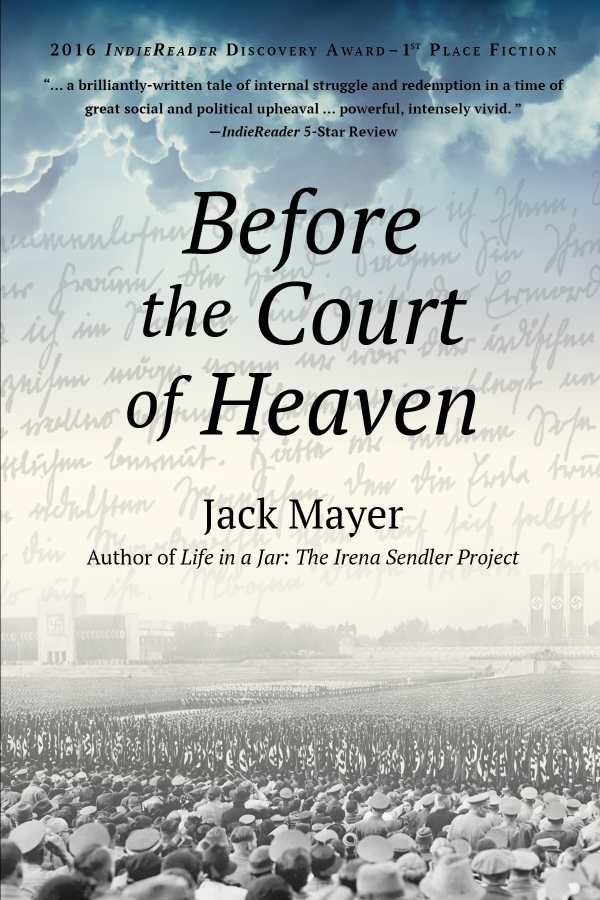Before The Court Of Heaven
- 2015 INDIES Finalist
- Finalist, Historical (Adult Fiction)
Period details come to life through grand-scale revolution as well as domestic minutia in this captivating story of Germany between the wars.
Ernst Werner Techow, a member of Germany’s underground Organization Consul, was the driver of the getaway car in the assassination of Walter Rathenau, a prominent Jewish statesman and foreign minister of Germany during the Weimar Republic. In Jack Mayer’s historical novel, Techow is the fascinating central figure whose story is deftly embellished. Before the Court of Heaven displays a remarkable talent for imagining the unknowable parts of Techow’s psyche.
The book begins with the 1922 crime, then circles through Techow’s memories of a privileged upbringing: his days in the Free Corps after the First World War; his insidious, almost natural recruitment into the terrorist Organization Consul; trial and imprisonment; disillusionment with the Vaterland; the rise of the Nazi party; and, briefly, Techow’s work rescuing refugees during the Second World War.
Threaded with impressionist art, romance, brutality, and self-reckoning, the plot darts between Techow’s private life, his increasing ambivalence regarding his role in the politics of his country, and the larger story of ordinary Germans who confronted the aftermath of the Treaty of Versailles in different ways. Period details come to life through grand-scale revolution as well as domestic minutia. When the story departs from the facts of the real Techow’s life, a courageous alternative blooms.
Techow is humanized through lingering scenes. Salient images from his early years—including golden laburnum trees and trips to the museum with his father—strike poignant notes of a fading civilized life. Techow’s love for art and a Jewish poet’s words also play against the expectations of the Organization Consul. The book steadily builds intriguing polarities in Techow’s nature: on one side lies an appreciation for beauty; on the other, a cold detachment fueled by loss. Such troubled currents keep the work moving. Mayer wisely avoids drawing a straight line from the pains of Techow’s childhood to his involvement in the nationalist movement. Instead, the hardening of his character unfolds in gradual increments. Techow becomes more than a criminal swept up in rhetoric.
Other noteworthy figures include Lisa, Techow’s distant lover, and Fritz, a friend and foil whose path takes increasingly disturbing turns. Leo and Hans Gerd, Techow’s brothers, reveal the divisions within families through their reactions to politics. Puck, a fellow inmate whose eccentric brand of intellectualism beguiles, is particularly memorable. As the man who challenges Techow in his darkest moments, Puck is a pivotal, complex character with provocative dialogue.
Before the Court of Heaven is a distinctive story poised between the drama of a Damascene conversion and a quieter, steadier about-face. Violence and atonement meld with affecting results.
Reviewed by
Karen Rigby
Disclosure: This article is not an endorsement, but a review. The publisher of this book provided free copies of the book and paid a small fee to have their book reviewed by a professional reviewer. Foreword Reviews and Clarion Reviews make no guarantee that the publisher will receive a positive review. Foreword Magazine, Inc. is disclosing this in accordance with the Federal Trade Commission’s 16 CFR, Part 255.

